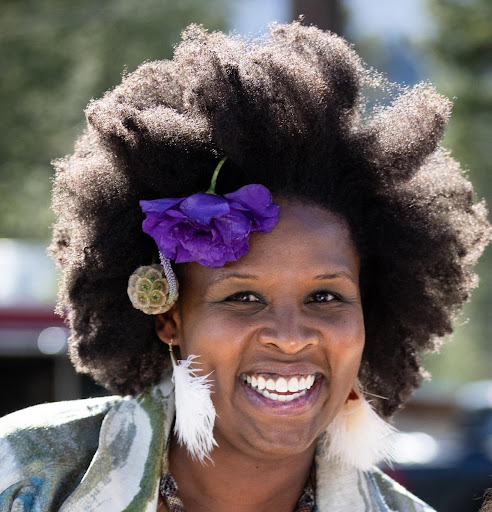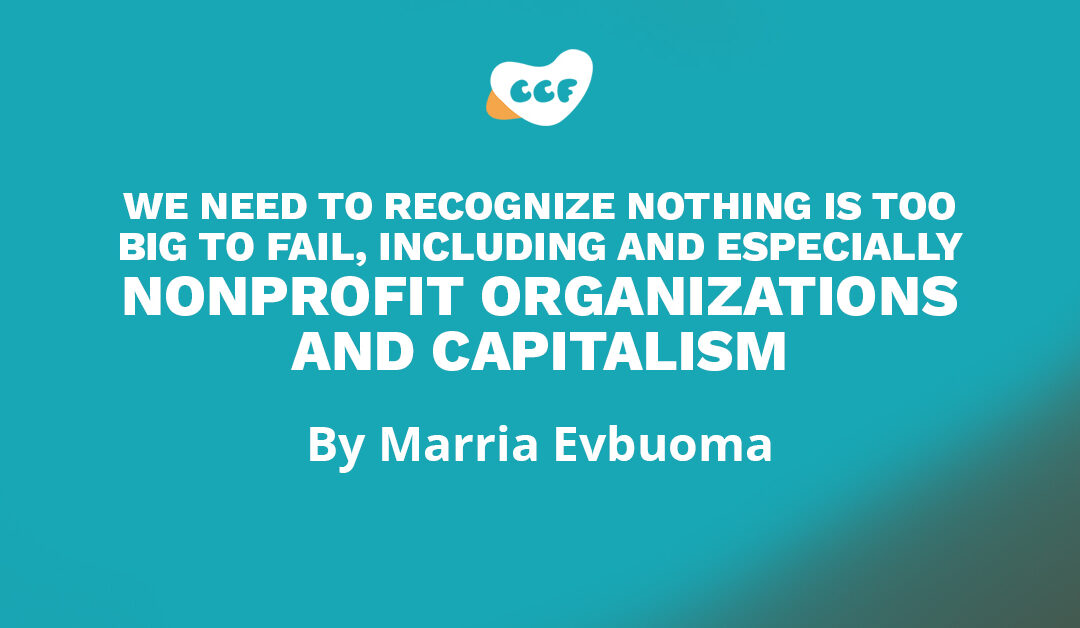By Marria Evbuoma, Founder/Worker at Rotation Community Services
During the early stages of the pandemic, a homeless encampment was established on my street. Although many have a vision of San Francisco as the liberal capital of America, when it comes to respectability politics, SF is conservative AF. Instead of showing compassion or even asking why an encampment suddenly appeared on our street, most folks remained silent. A vocal few demanded the city do “something” (meaning make unhoused people disappear).
The most requested items by our unhoused neighbors were tents and tarps. Yet the nonprofit we were encouraged to work with to distribute donations told us they couldn’t collect or distribute tents or tarps because doing so encouraged camping in public throughways, which was illegal and could cause them to lose their funding.
The vocal few won. The police barricaded the block and when that section of the street reopened, the encampment was gone. It was a “sweep.”
A few days later, another encampment was established. This time the tents and trailers were across from Ocean Beach, and not near homeowners worried about property values.
By then, I had joined with others who saw the sweeps happening near them and wanted to show solidarity with our unhoused neighbors. Our community group had conversations with folks in the encampments. What were their needs? What kinds of services were the city offering? How could we work together to address the gaps between what folks needed and what was happening during a time when most services and businesses had stopped operating.
At first, we organized hot meal deliveries because the use of grills and propane stoves was cited as a public safety reason for police to remove encampments. And as our conversations evolved, we discussed access to water, electricity, and trash service— all of which determined where and why encampments were being established in our neighborhood and why they were cited as public safety concerns.
The encampments near my home and others throughout our district were typically located near open public restrooms with toilets and running water, electrical outlets, municipal trash cans, and the convergence of multiple bus lines. And at this time, I was working for a small environmental nonprofit that did outreach around diverting items from landfill.
After months of coordination, our neighborhood group organized a donation drive/beach clean up with an audit of the trash collected with several nonprofits and the support of our district supervisor. In all, folks enjoyed coming together to help others and be in nature, especially during a time when public gatherings were still not really allowed. But this is where we began to run into issues working with large nonprofits funded by city government grants.
The most requested items by our unhoused neighbors were tents and tarps. Yet the nonprofit we were encouraged to work with to distribute donations told us they couldn’t collect or distribute tents or tarps because doing so encouraged camping in public throughways, which was illegal and could cause them to lose their funding.
We additionally discovered that the recyclable and compostable items from the clean-up could not be taken home by me as an employee of a nonprofit environmental organization because I was not a permitted waste hauler (mind you, my “hauling” was rolling my compost/recycling/landfill bins to the beach for use). There were special trash bags the city had for clean-ups that could be picked up by the streets and sanitation department. But those bags could not be distributed to unhoused neighbors for “personal use” despite them depending on overflowing municipal trash cans that were generating much of the litter.
Some unhoused and housed folks also took issue with these government grant-funded nonprofits operating during “normal” business hours and requesting unneeded items. The nonprofit asked for travel sized soap and shampoo but unhoused folks wanted dry shampoo and cleansing wipes because they didn’t have water access.
After this experience, I started noticing the gaps between community needs and grant requirements and deliverables. I asked other nonprofit workers about challenges they were facing when serving their clients. Over and over again, I heard the same scenario for folks funded by government grants— funding for this, but not for that and feeling disappointed and frustrated in their work.
After this experience, I started noticing the gaps between community needs and grant requirements and deliverables. I asked other nonprofit workers about challenges they were facing when serving their clients. Over and over again, I heard the same scenario for folks funded by government grants— funding for this, but not for that and feeling disappointed and frustrated in their work. I also accepted a position at a well-established nonprofit, hoping to support environmental and social justice work in the city through a youth environmental job training program.
While at this organization, I was reprimanded for organizing a teach-in about the health dangers gas-powered tools pose to workers and getting staff and clients to speak at a rally in support of an ordinance that would provide a just-transition to electric tools.
Then, a former client I knew was shot and killed near headquarters. And, there was an active shooter situation where clients and staff were trapped for hours as police negotiated with a client who had been terminated from the program because of threats of violence against other clients and staff.
Despite the trauma and the health risks they were facing, there were no supportive services or counseling for our clients. Most of the organization’s funding came from state agency grants and fee-for-service contracts that just wanted the jobs done, supporting the conditions of labor exploitation that BIPOC, immigrant, and low-income folks have been cycling through for generations.
How is it that we can ask folks to go “back to normal” when we know government grant-funded organizations, which are often the biggest in municipalities, continue to operate without intersectionality and effective community responsiveness? As passionately as we work, we must recognize that homelessness, litter, gun violence, and even apathy are signs of a larger problem: capitalism.
The dysfunction of operating within capitalism, a system that relies on superlatives to define successes, has become even more obvious since the pandemic. But how long will the infrastructure hold?
Like with financial institutions in 2008, cities, states, institutions, businesses, and nonprofits received COVID-19 funds from the federal government to help keep them from collapse. Three years after the start of the pandemic and in the face of another bank “bail out,” perhaps we need to recognize that nothing is too big to fail. And maybe accepting failure is just what we need to heal and be able to do the work how we know it needs to be done.

Marria Evbuoma
Marria Evbuoma (she/her, we/us) is a mom, zero waste advocate, and educator currently living in Huichin Ohlone land (Oakland, CA). She founded Rotation Community Services in 2022 to offer intersectional, equity-focused zero waste guidance, education, and resources in order to help dismantle the systems and traditions that harm individuals, communities, and our planet. When she’s not literally talking trash, she enjoys writing, community gardening, hula hooping, and making plant potions.
IG: @bold.azz.love
Venmo: @boldazzlove
Discover more from CCF
Subscribe to get the latest posts sent to your email.


You do so much for so many. Love you.
Yesss more anti-capitalism!! Thank you for calling this out.